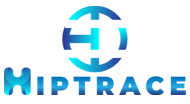An HRMS or Human Resources Management System is a software application used to manage human resources and relevant processes such as employee onboarding, employee performance, benefits, payroll, accounting, etc. This software ensures smooth functioning and management of data. Every organization who have decided to digitize itself is investing in HRMS as it makes the daily functioning of the organization easy.
Benefits of HRMS
HRMS facilitates in smooth functioning of different human resource activities such as:
- Employee onboarding: HRMS makes the process of employee onboarding easy by assisting in the hiring of new employees. It is the process where a new hire is connected with the organization and is familiarizing themselves with the vision, mission, culture, values, rules, and regulations, policies of the organization. It is more of an orientation procedure but more interactive and interesting.
- Recording and Storing data: HR software facilitates the easy and quick recording of employee information without wasting too much time, and energy on paperwork. It ensures the safe and efficient storage of employee data such as employment history, identity proof, education qualifications, incentives to be awarded, etc, with the help of onboarding automation.
- Employee payroll management: HRMS can manage the employees’ payroll. Payroll doesn’t only include their salary payouts but also tax deductions, incentive encashments, leave encashments, employee benefits, employee provident fund, reimbursements, etc. Since recording payroll is a sensitive process the necessity of HRMS increases as it eliminates any possible human error and ensures fair account keeping and payout.
- Attendance and time management: HRMS provides the HR representatives or managers with an amazing tool called ATS or Attendance Tracking System to track the attendance, working-hour, and leaves of an employee. It becomes easy for employees to track their leaves and process the request for leave according to availability and it becomes easy for managers to accept or decline the request as they can access the leaves database.
- Employee Performance management: HRMS allows periodic feedback, i.e, giving instant feedback about employees’ performance. It is important to know your employees’ performance so that you can easily identify the dedicated and hard-working employees who motivate them with appraisals or employees that have certain areas of improvement. With the traditional HR system employee had to wait for an annual review followed by once a year appraisal. HRMS has eliminated this approach and has provided an efficient performance management system.
- Data Security: For any organization, it is essential to protect their employee’s data and prevent the loss of information. HRMS provides complete security to the organization by providing access to that information only to the authorized and authenticated user. Also, only an authorized person can access employees’ information. He only can edit, update, add or analyze information.
- Employee self-service: Employees have detailed questions about companies’ policies, salary payouts, employee benefits, reimbursement plans, terms and conditions, bonds, and so on. An automated system helps employees to access such informations on their own. This information is provided directly to employees’ accounts.
- Cost-Effective: Since HRMS replaces time-consuming data entry tasks with automated technology it saves time and money required in the paperwork. It also saves money as payroll management companies won’t have to hire anyone specifically for this job.
Why is HRMS important:
- As explained earlier, HRMS is essential when it comes to data management as it allows real-time data tracking. Therefore eliminating the risk of data being misplaced or incomplete.
- Employee self-service provides the HR with relaxation to work on more strategic functions as employees themself can update their personal information on their own.
- HRMS is important for employee development and increasing their productivity as it allows to track employees’ performance.
- It integrates payrolls along with other company financial software, accounting systems, ERP systems, AI, and so on enabling the freedom to use only fewer systems.
- It allows all of the data to be stored in one single place which makes reporting easier, it also simplifies the access to information.
Conclusion
HRMS can be used by organizations of any size and number, a start-up can also benefit from this software by increasing their productivity, and enhancing their position in the market. It is important to conduct thorough research before purchasing any HRM software, make sure the HRM software you are investing in, validates your purpose and meets your terms.
canvas fisd (My Cfisd Net) – Learning Together Anywhere

